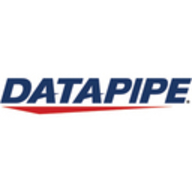

Datapipe and Oracle Cloud Infrastructure are competing cloud service providers. Datapipe offers superior support and competitive pricing, while Oracle Cloud Infrastructure stands out for its robust feature set, making it an appealing choice despite its higher cost.
Features: Datapipe offers excellent hybrid IT solutions, managed services, and advanced cloud management. Oracle Cloud Infrastructure provides a wide range of integrated services, such as AI, machine learning, and data analytics, appealing to those seeking advanced technical capabilities.
Ease of Deployment and Customer Service: Datapipe is known for its personalized customer service and swift deployment processes, catering to businesses that require hands-on support. Oracle Cloud Infrastructure offers a more standardized deployment model with robust documentation and customer resources, benefiting tech-savvy users.
Pricing and ROI: Datapipe provides competitive and transparent pricing structures, delivering a strong ROI for companies seeking cost-effective solutions. Although Oracle Cloud Infrastructure is more expensive, it offers substantial long-term ROI through advanced and scalable features, supporting businesses aiming for future growth.

Oracle Cloud Infrastructure offers autonomous database solutions, flexible scalability, and seamless application integration, backed by strong security features. Its competitive pricing and multi-tenancy capabilities provide significant value for enterprises needing comprehensive cloud infrastructure.
Oracle Cloud Infrastructure delivers robust database management, frequent updates, and advanced storage and network services. It boasts global pricing consistency and broad accessibility, making it a preferred choice for hosting databases and migrating on-premises applications. Users in diverse sectors rely on its ease of use, particularly in hosting applications and infrastructure management. However, OCI faces challenges in documentation and integration with third-party services and seeks improvement in automation, support responsiveness, and regional availability.
What are the key features of Oracle Cloud Infrastructure?OCI is utilized by companies in sectors like gaming, finance, and IoT for hosting databases and ERP systems. Its robust infrastructure supports high-performance computing and application development, making it a favorable option for integration and analytics tasks. Enterprises benefit from its capability to migrate on-premises systems to the cloud, enhancing their operational efficiency.
We monitor all Infrastructure as a Service Clouds (IaaS) reviews to prevent fraudulent reviews and keep review quality high. We do not post reviews by company employees or direct competitors. We validate each review for authenticity via cross-reference with LinkedIn, and personal follow-up with the reviewer when necessary.